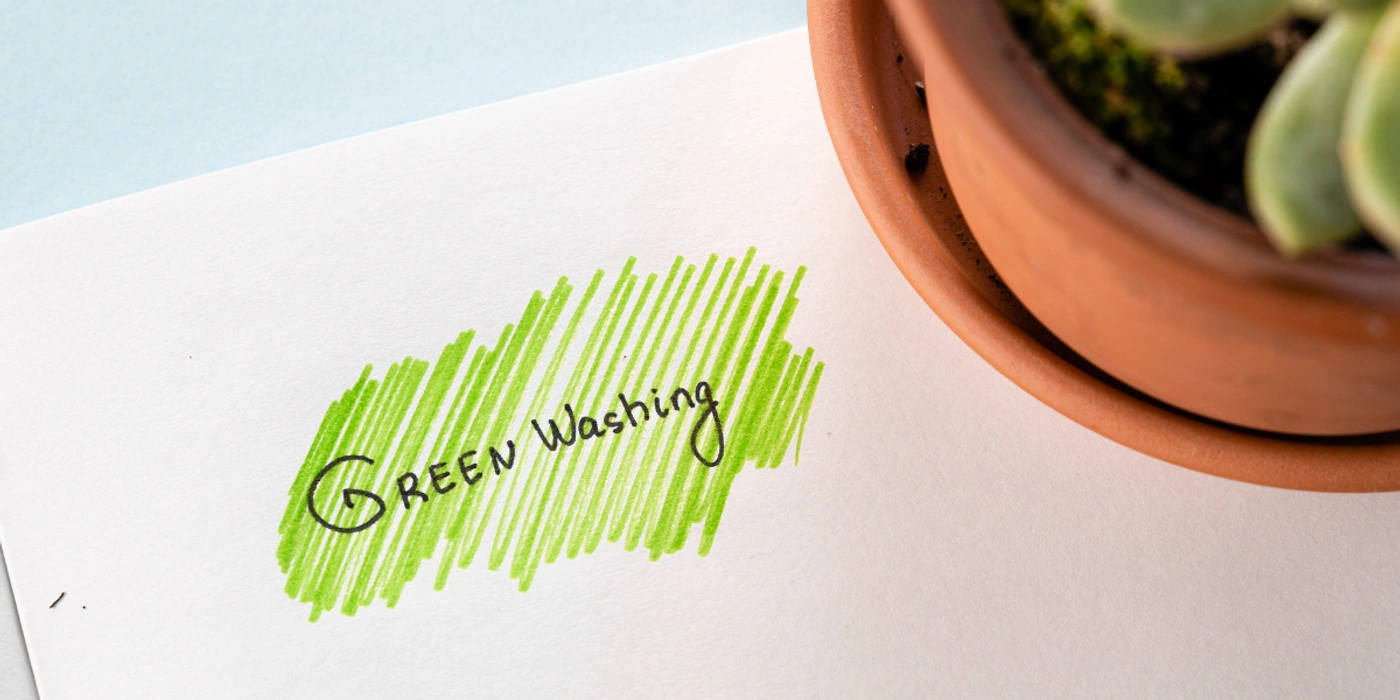How to recognize greenwashing?

In recent years, there has been a general awareness among consumers about sustainability issues. Companies have understood that this is a selling point. Unfortunately, some of them are taking advantage of the situation by touting social and environmental commitments that are in reality just a façade. They do what is called greenwashing.
What is greenwashing?
Greenwashing is a marketing technique used by an organization to give itself an eco-responsible image. It is a form of false and misleading advertising that allows companies to green their image and make us believe that they are in a sustainable development approach. But in reality, they are only in words!
This type of practice has many negative consequences. On the one hand, greenwashing confuses consumers, who are becoming increasingly suspicious of brands. On the other hand, they damage the image of companies that are genuinely committed to a CSR and sustainable development approach.
Greenwashing is punished, but many companies still resort to it. That's why it's important to learn how to identify it so you can tell the difference between real impact companies and those that are only concerned about their image. In this article, Meet My Job gives you 6 things to help you recognize a brand that is greenwashing.
Why join an eco-responsible company?
How to identify greenwashing?
Exaggerated and overly "green" packaging
Greenwashing can rely on codes and images that are ingrained in consumers' minds, and that create confusion when used. The green, the leaves, the nature, the "natural origin" labels ... So many symbols that lead us to think that the composition of the product is clean when this is not the case for many brands. It is therefore necessary to be well informed about the brands to favor and not to be influenced by a simple design!
Applications such as Yuka, Buyornot or Kwalito , for example, make it possible to analyse the composition of many products in the food or cosmetics industry. It's a good way to avoid certain ingredients that are bad for the environment and health!
See also: 6 Free Apps to Eat Better and Healthy
Actions that contradict the narrative
Some of the actions put in place are inconsistent with the brand's message. Let's take the example of ready-to-wear: a brand can very well promote its clothes made of organic cotton, and use minors as labor on the other side of the world...
In the cosmetics sector, the brand can claim that it does not use any animal substances in the manufacture of its products, and continues to test its products on animals. The lie is obvious, but it is important to keep your critical mind so as not to fall for it!
Lack of evidence
On some products, there are many claims such as "made from natural ingredients", "100% pure juice", "100% organic cotton", etc. But where can we find this information? What is the percentage of natural ingredients? Where is the asterisk that mentions the study affirming this message? Often, some claims are not regulated by organizations, which allows companies to use them as they wish! Hence the interest in combing through the company's various communication actions in order to discern the true from the false.
Irrelevant messages
Be careful not to fall into the trap! Some brands use eco-friendly attributes to describe their products when they have no relevance. For example, putting "palm oil-free" in large letters on the packaging when the product, by its very nature, does not contain palm oil.
Non-recognised labels
Some labels related to ecology and sustainable development can lead you to believe that they are a real label, reliable and meeting specific standards. However, these are sometimes invented labels that the brand has self-attributed to itself without having been subjected to any control. When you're dealing with a label, it's best to check if it really exists!
False exclusivity
According to ADEME, the French Environment and Energy Management Agency, the practice of " false exclusivity" consists of a company boasting of an ecological interest or an innovation when it is only complying with legal obligations. All competitors then have the same attributes (clearly nothing to brag about!)
As consumers, it is entirely possible to act at our level by remaining attentive to the communication actions of brands. Go beyond just reading the label and question the points you're skeptical about. To begin with, these 6 elements can help you recognize if a brand is greenwashing or not!
For more content, feel free to visit our Linkedin and Instagram !
Discover our positive impact companies
Meet My Job is the 1st Belgian recruitment platform dedicated to sustainable development. So, what are you waiting for? Find your dream job/internship in sustainability here !